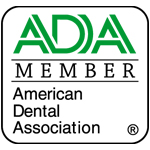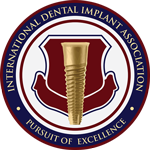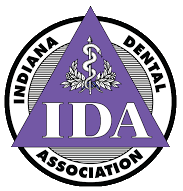
YOU HEAR ALL THE TIME about the importance of brushing your teeth for two minutes twice a day, and you hear almost as often about the importance of daily flossing. What you probably don’t hear a lot is that, if we want to maintain good oral health and hygiene, it’s also important for us to clean our tongues.
Why Should We Clean Our Tongues?
The tongue is one of the most bacteria-covered spots in our bodies. A tongue doesn’t just have taste buds on it, it also has crevices, elevations, and all sorts of tiny structures that bacteria will hide between unless physically removed. Letting all this bacteria sit and multiply can cause bad breath or halitosis, as well as tooth decay on the inner surfaces of the teeth. This is why it’s so important to regularly clean our tongues — so we can get rid of all the unwanted bacterial buildup!
Another benefit to removing the bacteria from our tongues is that it clears the way for our tastebuds to do their jobs. A bacteria-free tongue can taste food much more effectively, and it makes the first stage of the digestive process more effective too, which means improving our digestive health!
The Right Tools For Tongue-Cleaning
You might think mouthwash or rinsing with water is enough to clean your tongue, but that bacteria is stubborn, and simply swishing liquid in your mouth won’t clean out all those crevices on the tongue’s surface. If you really want to clean out that biofilm of bacteria, the key is to scrape it, preferably with a tongue-scraper. You can find these at the store near the toothbrushes, and you should use one every time you brush your teeth.
A toothbrush can do a decent job of cleaning your tongue if you don’t have a special tongue-scraper, and some toothbrushes even have bumps for tongue-scrubbing built in. After you brush your teeth but before you rinse and spit, take that brush or scraper to your tongue. Start at the back and work your way forward, and make sure to get as much of the surface as you can. It’s quick and easy and will make a major difference!
Tongue Scrapers Go Way Back
How long do you think tongue scrapers have been around? A few decades? Try since ancient times! Tongue-scraping is part of the daily hygiene regimen recommended by Ayurveda, the traditional medicine of India. Over the centuries, tongue scrapers in different cultures have been made of many different materials, including metals like copper, silver, gold, tin, or brass, as well as ivory, mother-of-pearl, whalebone, and tortoiseshell. These days, they’re most often made of plastic or stainless steel.
Need More Tips On Tongue-Cleaning?
If you have questions about cleaning your tongue or finding the right tongue-scraper, just ask! We are more than happy to help you add this important step to your dental hygiene routine. And don’t forget to keep brushing and flossing and scheduling those regular dental appointments!






